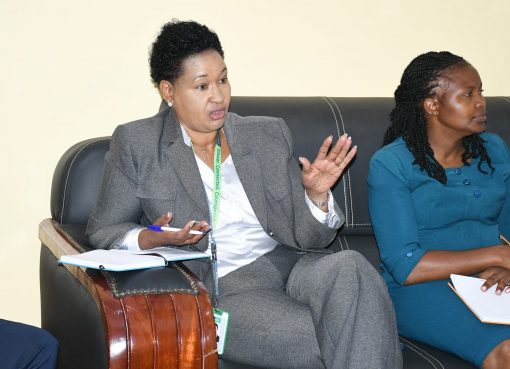The State Department for Technical Vocational Education and Training (TVET) has started the process of breaking down the TVET curriculum into small specializations which will be assessed and accredited within three months.
According to TVETs Principal Secretary, Dr Esther Muoria, breaking down the Competency-Based Education and Training (CBET) into short modules will allow trainees to transition to the job market in a shorter period of time. It is also aimed at reducing the cost and the duration of time taken in training.
“We are shifting from a situation where our young people will be in an institution, training for a whole year. We are doing this so that we give them an opportunity to transit to the world of work,” stated Dr Muoria.
Once modularized, learners in TVET institutions will be able to undertake their preferred course in modules and get a certification for every level undertaken. This will also mean that upon completion of one level, the trainee can opt to proceed with the course or use the acquired skill to enter the job market.
The restructured mode of study will also see TVETs adopt a micro-credential system to assess and certify learners. The micro-credential system is mostly used to accredit learners undertaking short training programs.
One of the significant changes that will be introduced include the reduction of theory content with the PS stating that the new model will focus on imparting practical skills.
“We are going to teach as very little theory as possible if not actually none, so that if it is communication, we are going to embed it within the trade area so that the communication that is taught is in accordance with that trade,” said Dr Muoria.
She noted that the curriculum review will also standardize entry requirements for all learners hoping to pursue the course in TVETs. Further, it will allow learners including those already working in the informal sector to access skills training or upgrade their competencies progressively.
“In another one month, we will make that curriculum completely ready so that those who are coming in May will have the same entry requirements. We are saying that whether you are coming in as a Class 8 drop-out or as Form-Four leaver with an A or an E, all of them will have the same entry behavior. They will start from the same level and they will be able to progress to their highest level or up to where they feel they are ready to join the world of work,” she said.
The PS spoke when she officially opened the modularization of the CBET curricular workshop at the Nyeri National Polytechnic. The workshop brought together stakeholders in the TVET sub-sector and industry with the aim of realigning the curriculum to meet the market demands.
She said that the new system will be rolled out in May this year across all TVETs in the country, adding that its implementation will be critical in accelerating enrollment in TVET institutions as well as attracting industrial investors into the country.
As a way of keeping an updated inventory of the available skill sets in the country, the PS said that going forward, all TVET heads will be expected to submit returns of the number of people trained and certified under the new system alongside their credentials.
“For the world to agree to come and establish their industries in Kenya, the most important factor is a skilled pool of youth. So the more we skill our youth the more we encourage industrialization into our country and our youth will automatically have jobs,” she said.
“We want by the end of this year to have not less than two million youths in our institutions. But the people who will be graduating in 3 months depends on those who will have enrolled,” she added.
By Wangari Mwangi





